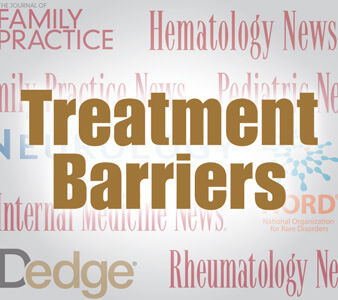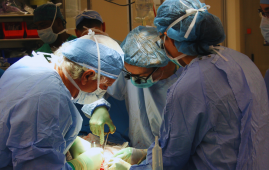

New Survey Findings Highlight Gene Therapy Knowledge Gaps Among HCPs
NORD and FMC Illustrate Need for Increased Education and Awareness to Overcome Potential Treatment Barriers
Parsippany, NJ – April 16, 2020 – With the availability of several promising gene therapies and more on the horizon, a recent survey published in Neurology Reviews’ 6th annual Rare Neurological Disease Special Report indicates that many potential prescribers are unaware of the life-changing potential of gene therapy. The survey, a joint undertaking by the National Organization for Rare Disorders (NORD®) and Frontline Medical Communications (FMC), was completed by a representative sample of health care providers across a variety of specialties and practice settings. Nearly two-thirds of respondents (63%) were unaware of FDA-approved gene therapy options, such as Kymriah , Luxturna®, and Zolgensma®, and although respondents reported treating an average of five patients with a rare genetic disorder, few recognized the range of potential benefits of gene therapy, how it is administered, long-term impacts, and mechanisms by which it works.
, Luxturna®, and Zolgensma®, and although respondents reported treating an average of five patients with a rare genetic disorder, few recognized the range of potential benefits of gene therapy, how it is administered, long-term impacts, and mechanisms by which it works.
A notable finding is the limited comfort level expressed by respondents in their knowledge base and ability to discuss genetic concepts with patients. Just 24% rated themselves as comfortable or extremely comfortable explaining somatic vs. germline mutations, and responses also identified unfamiliarity with gene delivery and administration options. The survey underscored the need for provider education on topics related to gene therapy, which is currently being seen as a potentially curative treatment for some rare disorders.
Concern that gene therapy will be cost-prohibitive (69%) and/or that patient access will be limited due to lack of insurance coverage (67%) ranked highly as perceived barriers.
“It is vital to develop strategies to ensure consistent and viable reimbursement models and to create multi-faceted, accessible educational outreach programs for the medical community at large,” said Katie Kowalski, Senior Program Manager of Educational Initiatives for NORD. “It is important for rare disease patients to be offered the opportunity to participate in clinical trials, and for clinicians to have accessible platforms to learn more about gene therapy so they can inform their patients about these treatment options.”
more recommended stories
 Texas Medical Board Releases Abortion Training for Physicians
Texas Medical Board Releases Abortion Training for PhysiciansKey Takeaways Texas Medical Board has.
 Safer Allogeneic Stem Cell Transplants with Treg Therapy
Safer Allogeneic Stem Cell Transplants with Treg TherapyA new preclinical study from the.
 Autoimmune Disorders: ADA2 as a Therapeutic Target
Autoimmune Disorders: ADA2 as a Therapeutic TargetAdenosine deaminase 2 (ADA2) has emerged.
 Kaempferol: A Breakthrough in Allergy Management
Kaempferol: A Breakthrough in Allergy ManagementKaempferol, a dietary flavonoid found in.
 Early Milk Cereal Drinks May Spur Infant Weight Gain
Early Milk Cereal Drinks May Spur Infant Weight GainNew research published in Acta Paediatrica.
 TaVNS: A Breakthrough for Chronic Insomnia Treatment
TaVNS: A Breakthrough for Chronic Insomnia TreatmentA recent study conducted by the.
 First-of-Its-Kind Gene-Edited Pig Kidney: Towana’s New Life
First-of-Its-Kind Gene-Edited Pig Kidney: Towana’s New LifeSurgeons at NYU Langone Health have.
 Just-in-Time Training Improves Success & Patient Safety
Just-in-Time Training Improves Success & Patient SafetyA study published in The BMJ.
 ChatGPT Excels in Medical Summaries, Lacks Field-Specific Relevance
ChatGPT Excels in Medical Summaries, Lacks Field-Specific RelevanceIn a recent study published in.
 Study finds automated decision minimizes high-risk medicine combinations in ICU patients
Study finds automated decision minimizes high-risk medicine combinations in ICU patientsA multicenter study coordinated by Amsterdam.

Leave a Comment